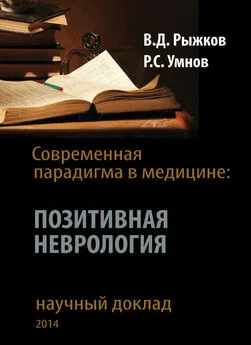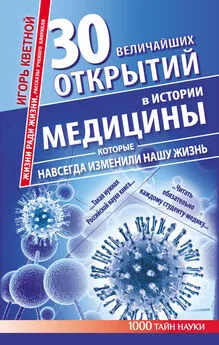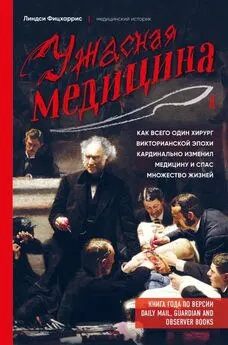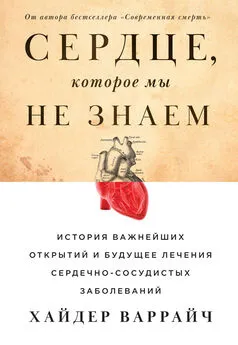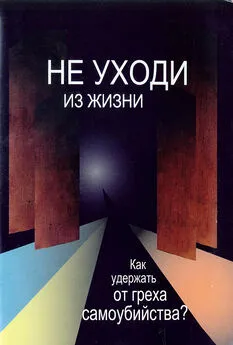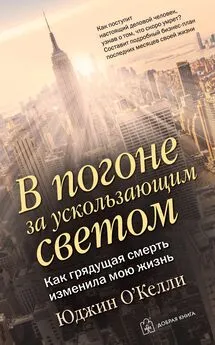Хайдер Варрайч - Современная смерть. Как медицина изменила уход из жизни
- Название:Современная смерть. Как медицина изменила уход из жизни
- Автор:
- Жанр:
- Издательство:Альпина нон-фикшн
- Год:2021
- Город:Москва
- ISBN:978-5-0013-9427-3
- Рейтинг:
- Избранное:Добавить в избранное
-
Отзывы:
-
Ваша оценка:
Хайдер Варрайч - Современная смерть. Как медицина изменила уход из жизни краткое содержание
По сравнению с серединой XX столетия радикально изменились все аспекты окончания нашей жизни — от чего мы умираем, когда умираем, где умираем и как умираем. В результате прогресса медицинской науки и медицинских технологий даже само определение смерти теперь формулируется иначе — что уж говорить о ее экологии, эпидемиологии, экономике и этике. Американская медицина прошла за это время огромный путь освоения новых подходов к смерти и умирающим — путь, на который в некоторых отношениях еще только предстоит вступить России. В своей дебютной книге доктор Варрайч рассказывает о сегодняшних ритуалах смерти и о ее современном языке — и на основе своего опыта лечащего врача в отделении интенсивной терапии крупной американской больницы задумывается о том, что лучше получалось у наших предков и в чем мы явно превзошли их.
Современная смерть. Как медицина изменила уход из жизни - читать онлайн бесплатно ознакомительный отрывок
Интервал:
Закладка:
102
Flynn A, Stewart DE. Where do cancer patients die? A review of cancer deaths in Cuyahoga County, Ohio, 1957–1974. J Community Health . 1979; 5 (2): 126-30.
103
Cartwright A. Changes in life and care in the year before death 1969–1987. J Public Health Med . 1991; 13 (2): 81–87.
104
Zander L, Chamberlain G. ABC of labour care: place of birth. BMJ . 1999; 318 (7185): 721-23.
105
Illich I. Medical Nemesis: The Expropriation of Health . Pantheon Books; 1976.
106
Distress of dying. BMJ . 1972; 3 (5820): 231.
107
Brock and Foley, Demography.
108
Where do people die? J Coll Gen Pract . 1960; 3 (4): 393-94.
109
Broad JB, Gott M, Kim H, Boyd M, Chen H, Connolly MJ. Where do people die? An international comparison of the percentage of deaths occurring in hospital and residential aged care settings in 45 populations, using published and available statistics. Int J Public Health . 2013; 58 (2): 257-67.
110
Decker SL, Higginson IJ. A tale of two cities: factors affecting place of cancer death in London and New York. Eur J Public Health . 2007; 17 (3): 285-90.
111
Gomes B, Higginson IJ. Where people die (1974–2030): past trends, future projections and implications for care. Palliat Med . 2008; 22 (1): 33–41.
112
Higginson IJ, Sen-Gupta GJ. Place of care in advanced cancer: a qualitative systematic literature review of patient preferences. J Palliat Med . 2000; 3 (3): 287–300.
113
Solloway M, LaFrance S, Bakitas M, Gerken M. A chart review of seven hundred eighty-two deaths in hospitals, nursing homes, and hospice/home care. J Palliat Med . 2005; 8 (4): 789-96.
114
Gruneir A, Mor V, Weitzen S, Truchil R, Teno J, Roy J. Where people die: a multilevel approach to understanding influences on site of death in America. Med Care Res Rev . 2007; 64 (4): 351-78.
115
Weitzen S, Teno JM, Fennell M, Mor V. Factors associated with site of death: a national study of where people die. Med Care . 2003; 41 (2): 323-35.
116
Gomes B, Higginson IJ. Factors influencing death at home in terminally ill patients with cancer: systematic review. BMJ . 2006; 332 (7540): 515-21.
117
Bell CL, Somogyi-Zalud E, Masaki KH. Factors associated with congruence between preferred and actual place of death. J Pain Symptom Manage . 2010; 39 (3): 591–604.
118
Fischer CS, Hout M. Century of Difference: How America Changed in the Last One Hundred Years . Russell Sage Foundation; 2008.
119
Silverstein M, Bengtson VL. Intergenerational solidarity and the structure of adult child — parent relationships in American families. Am J Sociology . 1997; 103 (2): 429-60.
120
Bianchi S, McGarry K, Seltzer J. Geographic Dispersion and the Well-Being of the Elderly . Michigan Retirement Research Center, University of Michigan; 2010.
121
Moinpour CM, Polissar L. Factors affecting place of death of hospice and non-hospice cancer patients. Am J Public Health . 1989; 79 (11): 1549-51.
122
Gooch RA, Kahn JM. ICU bed supply, utilization, and health care spending: an example of demand elasticity. JAMA . 2014; 311 (6): 567-68.
123
Broad et al., Where do people die?
124
Munday D, Petrova M, Dale J. Exploring preferences for place of death with terminally ill patients: qualitative study of experiences of general practitioners and community nurses in England. BMJ . 2009; 339: b2391.
125
Finkelstein A. The aggregate effects of health insurance: evidence from the introduction of medicare. Q J Econ . 2005; 122 (3): 1-37.
126
Sampson WI. Dying at home [letter]. JAMA . 1976; 235 (17): 1840.
127
Flory J, Yinong YX, Gurol I, Levinsky N, Ash A, Emanuel E. Place of death: U. S. trends since 1980. Health Aff (Millwood). 2004; 23 (3): 194–200.
128
National Center for Health Statistics. Health, United States, 2010: With Special Feature on Death and Dying . Hyattsville, MD: National Center for Health Statistics; 2011.
129
Flory et al., Place of death.
130
Hanchate A, Kronman AC, Young-Xu Y, Ash AS, Emanuel E. Racial and ethnic differences in end-of-life costs: why do minorities cost more than whites? Arch Intern Med . 2009; 169 (5): 493–501.
131
Smallwood N. Poorest people are more likely to die in hospital. BMJ . 2010; 341: c4518.
132
Bigger than Marx, Economist . May 3, 2014.
133
McEwan I. The Cement Garden . Anchor; 1994.
134
Smithers D. Where to die. BMJ . January 6, 1973; 1 (5844): 34–35.
135
Mills J, ed. Body Mechanics and Transfer Techniques . 4th ed. Philadelphia, PA: Lippincott Williams & Wilkins; 2004.
136
Turk LN III, Glenn WW. Cardiac arrest; results of attempted cardiac resuscitation in 42 cases. N Engl J Med . 1954; 251 (20): 795–803.
137
2 Kings 4: 34 (KJV).
138
Mitka M. Peter J. Safar, MD: «father of CPR», innovator, teacher, humanist. JAMA . 2003; 289 (19): 2485-86.
139
Kacmarek RM. The mechanical ventilator: past, present, and future. Respir Care . 2011; 56 (8): 1170-80.
140
Perman E. Successful cardiac resuscitation with electricity in the 18th century? BMJ . 1978; 2 (6154): 1770-71.
141
Delgado H, Toquero J, Mitroi C, Castro V, Lozano IF. Principles of external defibrillators. In: Erkapic D, Bauernfeind T, eds. Cardiac Defibrillation . InTech; 2013.
142
Beck CS, Pritchard WH, Feil HS. Ventricular fibrillation of long duration abolished by electric shock. JAMA . 1947; 135 (15): 985.
143
Cohen SI. Resuscitation great. Paul M. Zoll, M. D. — the father of «modern» electrotherapy and innovator of pharmacotherapy for life-threatening cardiac arrhythmias. Resuscitation . 2007; 73 (2): 178-85.
144
Zoll PM, Linenthal AJ, Gibson W, Paul MH, Norman LR. Termination of ventricular fibrillation in man by externally applied electric countershock. N Engl J Med . 1956; 254 (16): 727-32.
145
Nadkarni VM, Larkin GL, Peberdy MA, Carey SM, Kaye W, Mancini ME, et al. first documented rhythm and clinical outcome from in-hospital cardiac arrest among children and adults. JAMA . 2006; 295 (1): 50–57.
146
Vallejo-Manzur F, Varon J, Fromm R Jr, Baskett P. Moritz Schiff and the history of open-chest cardiac massage. Resuscitation . 2002; 53 (1): 3–5.
147
Hake T. Studies on ether and chloroform, from Prof. Schiff’s physiological laboratory. In: Anstie F, ed. The Practitioner: A Journal of Therapeutics and Public Health . London, UK: Macmillan and Co; 1874.
148
Eisenberg MS. Life in the Balance: Emergency Medicine and the Quest to Reverse Sudden Death . Oxford University Press; 1997: 110.
149
American Medical Association. Section on Surgery and Anatomy. Transactions of the Section on Surgery and Anatomy of the American Medical Association at the 57th Annual Session . American Medical Association Press; 1906: 518.
150
Kouwenhoven WB, Jude JR, Knickerbocker GG. Closed-chest cardiac massage. JAMA . 1960; 173: 1064-67.
151
Lawrence G. Tobacco smoke enemas. Lancet . 2002; 359 (9315): 1442.
152
Satya-Murti S. Rectal fumigation. A core rewarming practice from the past. Pharos Alpha Omega Alpha Honor Med Soc . 2005; 68 (1): 35–38.
153
Relman AS. The new medical-industrial complex. N Engl J Med . 1980; 303 (17): 963-70.
154
Tracking progress toward global polio eradication — worldwide, 2009–2010. MMWR . 2011; 60 (14): 441-45.
155
Drinker P, Shaw LA. An apparatus for the prolonged administration of artificial respiration, I: a design for adults and children. J Clin Invest . 1929; 7 (2): 229-47.
156
Lassen HC. A preliminary report on the 1952 epidemic of poliomyelitis in Copenhagen with special reference to the treatment of acute respiratory insufficiency. Lancet . 1953; 1 (6749): 37–41.
157
Andersen EW, Ibsen B. The anaesthetic management of patients with poliomyelitis and respiratory paralysis. BMJ . 1954; 1 (4865): 786-88.
158
Watson JD, Crick FH. Molecular structure of nucleic acids; a structure for deoxyribose nucleic acid. Nature . 1953; 171 (4356): 737-38.
159
Symmers WS Sr. Not allowed to die. BMJ . 1968; 1 (5589): 442.
160
Emrys-Roberts M. Death and resuscitation. BMJ . 1969; 4 (5679): 364-65.
161
Oken D. What to tell cancer patients. A study of medical attitudes. JAMA . 1961; 175: 1120-28.
162
Fitts WT Jr, Ravdin IS. What Philadelphia physicians tell patients with cancer. JAMA . 1953; 153 (10): 901-4.
163
Kelly WD, Friesen SR. Do cancer patients want to be told? Surgery . 1950; 27 (6): 822-26.
164
Is the medical profession inevitably patriarchal? Lancet . 1977; 2 (8039): 647.
165
Curtis JR, Rubenfeld GD. Managing Death in the Intensive Care Unit: The Transition from Cure to Comfort . Oxford University Press; 2000: 11.
166
Gazelle G. The slow code — should anyone rush to its defense? N Engl J Med . 1998; 338 (7): 467-69.
167
McFadden RD. Karen Ann Quinlan, 31, dies; focus of ’76 right to die case. New York Times . June 12, 1985.
168
Kennedy IM. The Karen Quinlan case: problems and proposals. J Med Ethics . 1976; 2 (1): 3–7.
169
Testimony begins in Karen Quinlan case. Observer Reporter . October 21, 1975.
170
Lepore J. The Mansion of Happiness: A History of Life and Death . Alfred A Knopf; 2012: 153.
Читать дальшеИнтервал:
Закладка:

